Generality
Phosphatidylcholine is a known and studied phospholipid for a very long time, as it is abundantly represented in nature and introduced daily through various foods (soy lecithin, liver and egg yolk are particularly rich in it).

Phosphatidylcholine is made up of a phosphate group, 2 fatty acids and choline, precursor of acetylcholine. Having a hydrophilic head and two lipophilic tails, it enjoys amphipathic properties.
The nutritional role of Phosphatidylcholine is very important, so much so that it is abundantly used in the food industry (as an emulsifying agent) and in the dietary industry (as a useful supplement for lowering cholesterol and promoting the efficiency of the liver and brain).
In the human organism, Phosphatidylcholine represents one of the main components of the plasma membrane, regulating its fluidity, integrity and permeability.
Its biological activities have aroused particular interest both in the clinical setting, as a hepato- and neuro-protective agent, and in aesthetic medicine as a possible mesotherapy remedy for the treatment of localized adiposity.
Indications
Why is Phosphatidylcholine used? What is it for?
Phosphatidylcholine is the main product of the normal metabolism of Choline.
As a phospholipid, it is part of the normal constitution of cell membranes, thus regulating the cell-cell and cell-matrix network.
This type of activity is fundamental in controlling the normal activities of various organs and systems.
In light of its biological role, the correct intake of Phosphatidylcholine has proved useful:
- In preserving correct liver function, protecting the liver from numerous pathological conditions, both acute such as hepatitis and chronic such as fibrosis;
- In controlling the clinical course of neurological diseases such as Alzheimer's disease;
- In assisting some anticancer therapies, as observed in recent evidence;
- In improving pathological conditions such as dyskinesias;
- In treating skin imperfections and localized adiposity, if used via mesotherapy.
Properties and Effectiveness
What benefit has Phosphatidylcholine shown during the studies?
The clinical utility of Phosphatidylcholine has been widely described in various papers.
Phosphatidylcholine and liver
In numerous studies, both experimental and clinical, Phosphatidylcholine would have proved to be an excellent hepatoprotective agent.
This activity would be due both to the ability to supply adequate quantities of Choline, known for its antioxidant activity, and to a direct hepatoprotective action of the phospholipids.
This activity was recorded both in the course of viral hepatitis, in which a possible antiviral action would appear to be added, and in the course of chronic diseases.
Phosphatidylcholine and dyskinesia

Soy Lecithin Granules: Particularly Rich Source of Phosphatidylcholine
Tardive dyskinesia is a neurological disorder characterized by a defect in the normal neurological activity of the cholinergic system.
According to preliminary evidence, the use of both Choline and Phosphatidylcholine would seem to actively improve the symptoms in progress, delaying complications.
Phosphatidylcholine and neurological pathologies
Particularly interesting would be the results published by some works, in which the adequate use of Phosphatidylcholine in patients suffering from Alzheimer's disease would have determined the appearance of some improvements, such as that of short-term memory.
This activity would be traced back to the ability of Phosphatidylcholine to protect nerve cells from the damaging action of free radicals and of the Beta-Amyloid protein, which are mostly expressed in this pathology.
Phosphatidylcholine and hypercholesterolemia
Several studies have shown the usefulness of Phosphatidylcholine in reducing blood concentrations of cholesterol, acting directly on the enzyme Lecithin Cholesterol Acyl-Transferase (LCAT), involved in the elimination of cholesterol from the tissues.
This activity could further support the hypothesis of a potential cardioprotective role of Phosphatidylcholine.
Phosphatidylcholine and cellulite
The use of Phosphatidylcholine in the treatment of localized adiposity is quite recent.
The intra-adipose injection, through mesotherapy techniques (lipodissolve), of Phosphatidylcholine and other active ingredients, such as Carnitine, would have proved to be particularly effective in the treatment of localized adipose accumulations, which are not very responsive to dietary treatment.
Despite the low invasiveness of the procedure, characterized at most by the appearance of local inflammatory reactions related to the injection technique, the use of phosphatidylcholine as a mesotherapy remedy is contraindicated in underage patients, pregnant or lactating women, in complicated diabetics, in infectious patients, in immunosuppressed or allergic patients to soy and in the presence of hepatic insufficiency, renal insufficiency, obesity, bleeding disorders and / or menstrual changes.
Dosage and method of use
How to use Phosphatidylcholine
Classically, the range of Phosphatidylcholine most used in the studies is between 3 and 9 g per day, divided into several intakes.
Phosphatidylcholine is present in supplements in the form of:
- Lecithins, with percentages of phosphatidylcholine between 20 and 30%;
- Capsules containing 55 or 90% of Phosphatidylcholine.
Side effects
Despite the general good tolerability of Phosphatidylcholine, sometimes, following its use, the onset of nausea, diarrhea and increased salivation has been observed.
Contraindications
When should Phosphatidylcholine not be used?
The use of Phosphatidylcholine is contraindicated in patients hypersensitive to the active ingredient or to soy.
Pharmacological interactions
What drugs or foods can modify the effect of Phosphatidylcholine?
There are currently no known drug interactions worthy of note between Phosphatidylcholine and other active ingredients.
Precautions for use
What do you need to know before taking Phosphatidylcholine?
The use of phosphatidylcholine-based supplements could cause the onset of diarrhea and steatorrhea in patients with intestinal malabsorption.
The use of Phosphatidylcholine should be avoided or closely supervised by a physician in patients with anti-phospholipid antibody syndrome.

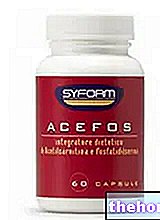
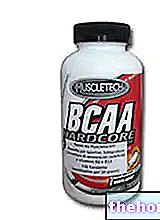
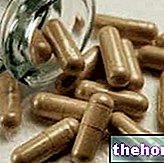
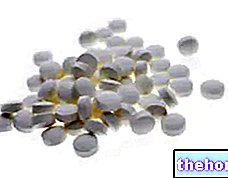
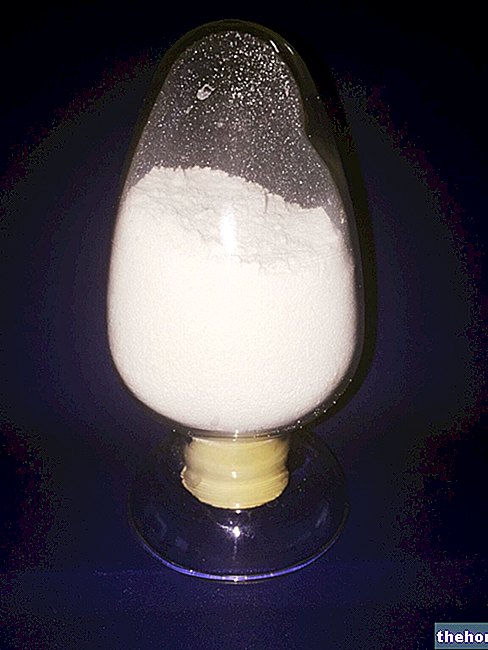
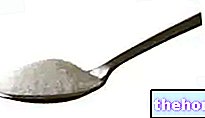









.jpg)











